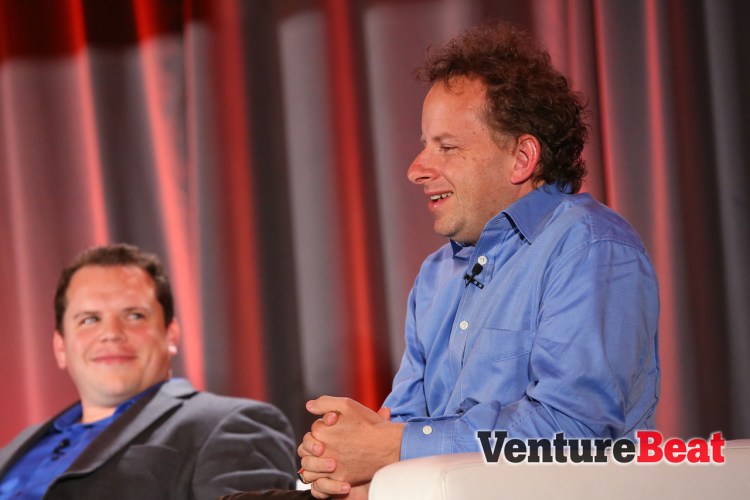The time has come for doctors to call on fleets of servers to spot hidden trends and anomalies in medical images as they diagnose patients.
That’s because today a startup called Enlitic launched. It’s building technology to assist doctors using an increasingly popular approach to artificial intelligence known as deep learning.
This style of computing involves training systems called artificial neural networks on lots of information derived from audio, images, and other inputs and then presenting the systems with new information and receiving inferences about it in response. Enlitic’s founder and chief executive, Jeremy Howard, wants to mine medical data with this approach and provide easy-to-use applications for health care professionals.
“The process of diagnosing you at least could be based on the approach of analyzing past data sets of analyzing similar cases and so forth,” Howard said in an interview with VentureBeat.
Data could include X-rays, MRIs, CT scans, 3D medical images. Enlitic’s software could plug into systems medical institutions already use to share or view medical images. Researchers could annotate images and click to find similar elements in other data. Enlitic could partner with medical technology companies on licensing deals or even joint product development.
A technology attracting no shortage of hype these days, deep learning is changing quickly, with new best practices and techniques coming out all of the time. With the launch of Enlitic, it’s becoming clear that just as there’s room for deep-learning technology that can come in handy across many industries, there could also be room for applications for specific areas and types of workers. Howard thinks that’s possible as deep learning continues to mature.
A startup called Jetpac used deep learning to spot smiles and other things in Instagram images. Google just bought it. And Twitter may get better image-searching capability as a result of its acquisition of Madbits. An intern at music-streaming service Spotify has come up with fascinating playlists based on a deep-learning-powered recommendation engine he created.
Meanwhile, startups are building technology that can help lots of companies implement deep learning into their architectures, or improve the efficiency of their existing systems. On the hardware side, there’s Ersatz and Nervana. Image-oriented Clarifai and open-source-focused Skymind have been working on application-agnostic software.
When it comes to health care, Enlitic will have to prove that it has an edge when it comes to technology, even if lots of other startups are hoping to get big by advancing health care. Take cancer-centric Flatiron Health; Evolent Health, which suggests treatment options based on data; and Zephyr Health, which can show the differences of people who participate in drug trials. And Brainreader, a Denmark startup, analyzes medical images to help doctors diagnose people with Alzheimer’s disease.
Meanwhile, IBM has made it clear that it intends to use its Watson “cognitive” technology in the context of health care, even if it’s not using deep learning but other methods of training on large data sets and then making judgments on the fly.
IBM in particular can grab a lot of attention on account of its marketing powers alone, which leaves Enlitic charged with demonstrating its advantages, whether it be the time it takes to implement or the concrete results doctors and patients can gain.
In any case, given the hiring and acquisition activity in deep learning and the vibrant health care market these days, if Enlitic shows some success, it could end up looking like the strong addition to a health care technology company, if not for its technology, then for its team.
Howard himself would be great to nab. He was previously president of data-science competition startup Kaggle. That’s where he saw deep learning systems consistently helping people win competitions, he said.
In addition to Howard himself, Enlitic employs three senior data scientists with deep experience in computer vision. Companies might love a team like that.
But Howard says he isn’t trying to start a company and then quickly flip it.
“This is actually a 20 year plan for me, not a 2 year plan for me,” he said.


